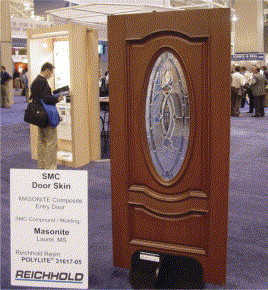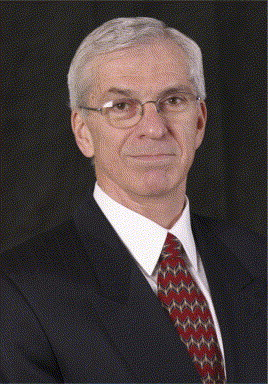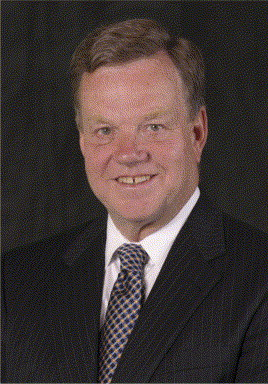


In 2007 Reichhold will celebrate its 80th anniversary. The company, with headquarters in Research Triangle Park (RTP), North Carolina, USA, was founded by Henry Reichhold in 1927 and was listed on the New York Stock Exchange (NYSE) in 1955. In 1987 it was acquired by Japanese chemical company Dainippon Ink and Chemicals (DIC). Over the following years DIC made a number of acquisitions to expand the company's composites and coatings businesses, including Resana Resins & Polymer of Brazil in 1996, and Jotun Polymer's polyester business in 1997. In 2005 the current management team, headed by Gaither, Frey and four other senior company executives, purchased Reichhold from DIC.
Gaither and Frey were former Reichhold employees.
“The six of us that own the company today have 135 years of experience between us, and we really do care about the company,” says Gaither. “Most of us ended up leaving at some point in time because of the way things were going, and then we watched from the sidelines and saw that the things they were trying to do were not in the best interests of the company.”
Gaither and Frey then approached Dainippon about selling the company and DIC asked them to come back and run it for them. Eventually a sale was agreed.
“We finally came up with a deal which I think was really good for both of us,” explains Gaither. “We as the managers were able to acquire 100% of the company. They took a seller note for that. That was just a year ago – September 30th last year – and now actually we've already gone out and refinanced that, and paid them back, and we took on some long-term debt which is very consistent with our strategy, which is a long-term strategy.”
“One of the things I'd really like to emphasise is that we're not an equity fund,” Gaither told us. “We did not do this to turn around and look for the quickest exit strategy. Quite the contrary. I think we could probably make a lot of money right now by just selling the business, but that's not our goal at all. We think we can create more value over the long term by growing the business and we think we've got the right people to do that. There are six of us on the management team and we're the owners of the company so the shareholders and the executives are closely aligned! And because of that we can make decisions very quickly and move very fast. I think that's a big plus.”
Gaither and Frey are joined on the management team by Rodney Biddle, SVP, Global Coatings; Bill Branson, SVP Operations & Supply Chain; Mitzi Van Leeuwen, SVP Corporate Services; and Roger Willis, Chief Financial Officer & Treasurer.
“It's a small team, but with a lot of experience,” notes Gaither, “and we've just been systematically going through and fixing things.”
Back to basics
Fixing things has involved going back to the basics.
“I think the principle change that our team has tried to bring to the company compared to say the previous four to six years prior to that is really focusing on the basic business elements of the company,” says Frey. “It's become a bit clichéd to talk about ‘back to the basics’ and ‘blocking and tackling’ but that's really what we're doing. We're focusing on cost, customer service and quality, rather than spending a lot of money on strategic development issues.”
There was a high staff turnover and a lot of reorganisations in the company in the late ‘90s/early 2000s and DIC often brought in managers with no knowledge of the composites business. Frey and Gaither believe Reichhold's core strength now is its people's experience and knowledge of the business, and they always try to promote staff from within the company rather than bringing in people from outside.
Improving plant productivity was one of the first areas to tackle and de-bottlenecking necking the plants was top of the list.
“Frankly, one thing that Dainippon did, they spent a lot of money on plants,” notes Gaither, “but often what they were missing was the last little piece to make that investment truly successful. So to a certain extent it's become fairly easy for us to come in with the knowledge and the people that can identify what is that little piece that is missing, and sometimes the capital that's involved in that is almost nothing. To de-bottleneck brings a huge increment in capacity so we've really got our plants running a lot more efficiently. We haven't finished that process yet. We came back and just started prioritising and working our way down the list. We're part way down that list now and there are still a lot more improvements that can and will be made.”
Getting back to the basics has also paid off financially.
“We've improved our productivity dram-atically just by paying attention to the details and having guys in the leadership position who really understand manufacturing resins,” Gaither says. “Our plant productivity has gone up very significantly. That's lowered our costs. Getting the right cost structure in place is important to us. Our operating expenses were much too high for what they should be as a percentage of sales. We've gotten those down to a much more reasonable number.”
“It's about trying to create more value for our customers – producing quality products, in spec, on time, at competitive costs – and then getting the value for the products that they deserve,” Gaither emphasises. “I think the industry for many years has been operating well below reinvestment economics. I'm not sure we're really yet at reinvestment economics but we're a lot closer than we used to be.”
Gaither is now looking to the future.
“We're well into the positive numbers – not where we want to be but certainly moving in the right direction. And now we're starting to focus a lot more on growth.”
Global growth
Reichhold believes it is a global player already. Frey will not disclose capacity figures but says that Reichhold is the world's number one supplier of unsaturated polyester resin (in both revenues and volumes), not necessarily in the US or in Europe but in global terms. It is number one in Brazil however, following the acquisitions it has made in the country over the years.
Today, Reichhold has 18 plants in 11 countries. Two of these plants are not Reichhold-owned but have toll manufacturing agreements with the company. One of these is Spolchemie in the Czech Republic and this relationship strengthens Reichhold's position in the growing market of Eastern Europe. Spolchemie started up a new 30 000 tonne plant at the beginning of 2006 which Reichhold helped design and Reichhold has committed to take 100% of the plant's output.
“We believe that even prior to this we were the market leader in Eastern Europe but this really solidifies our position and gives us the ability to grow with that market,” says Gaither. “That's certainly become the fastest growing area in Europe these days.”
Around half of Reichhold's business – worth a little over US$1 billion in revenues – is outside of the USA, and the composites business is the biggest part of this.
Environment
Reichhold's environmental policy states that the company is committed to developing, producing, distributing, using and disposing of its products in a safe and environmentally sound manner.
Reichhold's goal is 100% compliance, 100% of the time, with all environmental regulations. In 2006 (year-to-date) the company has received no notices of environmental violations and no fines from state and federal environmental agencies.
In May 2006, Reichhold's Jacksonville, Florida, plant received an Environmental Stewardship Award from the Jacksonville Electric Authority (JEA)'s Industrial Pretreatment Division for achieving 100% environmental compliance in industrial water pre-treatment during 2005. In presenting the award to Reichhold, officials noted that the company had successfully completed all of 2005 within the JEA's specified guidelines for pre-treatment of its waste water, experiencing no exceedances during the year. (An exceedance is the amount by which a pollutant exceeds a standard or permissible measurement.) According to JEA officials, only 30% of all companies it regulates are able to achieve full compliance for a full 12-month period.
“We're well balanced geographically,” says Frey. “About half of our business is outside the US, and we've got a big position in Latin America. What's not part of our portfolio right now is Asia. Part of that is because of our history with Dainippon. They had their strategic share, which was Asia; ours was Europe and the Americas. Now, after the MBO, we're free to go in that direction and we're actively considering some expansion into Asia, probably India and/or China.”
“It's following our customers really,” he continues. “We've got a couple of global customers that we supply in Europe and the US and they're saying that we need to be there.”
According to Frey, the company's options are open on whether its involvement in Asia comes via an acquisition, a new plant or a toll agreement, but he says that a decision is imminent for both countries.
“We'll probably have product in China available by the end of this year,” Gaither confirms. “It'll be a toll agreement. In India we're seriously looking at a grass roots start up plant. We've gone through the first stage and we've looked at some sites.”
Focusing more resources on emerging markets is one phase of Reichhold's growth strategy. The other involves growing its mature markets through innovation and better service.
Innovation
In traditional composites markets, such as tub/shower, Reichhold is working on finding higher value added products and applications. At the American Composites Manufacturers Association (ACMA) tradeshow in St Louis this October the company displayed a new decorative coating for cultured marble. This technology originated in the company's coating business. Reichhold hopes that this successful crossover will be followed by others by getting its two businesses to talk to each other more.
Another application displayed at the ACMA show was an outer ‘skin’ made from sheet moulding compound (SMC) for wooden doors, a huge potential market. Reichhold is also excited about its closed mould technology, and applications in the automotive and wind energy industries.
“We've got a new system that we're not quite ready to introduce but it's a Class A automotive surface application,” notes Frey. “It's a system that we're looking at patenting and that finds application in automotive roof modules. Another market for us is wind power. We're a major supplier not only of the resin that makes the blade but the bonding paste that glues the blades together and the gel-coat outer surface. That's part of why we're looking at Asia, because that market is growing so rapidly, and you don't build 200 ft long blades in the US and ship them to China, you make them in China.”
“We strongly believe that the greatest opportunity in the composites business is replacement of other materials – wood, concrete, steel, aluminum,” he continues, “and a big part of our participation in the ACMA is working with the rest of the industry to find ways to grow our markets, not just through economic growth but also by displacing other materials. There are many good stories of how that could be done and we look to do that more rapidly.”
Another important area Reichhold is working on is leveraging its technologies globally. In the past its European and US businesses operated differently.
“What we've really tried to focus on is the concept of building one global team,” says Frey. “We've got a great research centre in Europe in Norway, we've got an equally good facility in our headquarters in RTP, a big centre in Brazil, and a smaller one in Mexico. We're trying to start managing projects on a global basis, making sure that if we develop a product in Brazil, for example, that we don't reinvent it over here in Europe, and that it's done in a way that fits one standard global process. There's a lot of opportunity to do that. That's not only cost effective but I think it's business effective. It really gives us an opportunity to put more ideas in the hat and pick only the best.”
Speed of technology transfer is another important factor.
“We've got to roll out our new product developments globally more quickly,” Gaither states. “In the past you had a big success in the United States and it takes five years to get it implemented in Europe. I think DCPD would be a classic example of that. That was a big selling product for many years in the US and took a long time to get introduced to Europe. We should be moving these technologies across the borders much faster. That's why it's important that all of our global technology centres communicate very regularly, that they prioritise those projects on a global basis, and that we move this technology around the world more quickly.”
So what can we expect to see from Reichhold in the coming year?
“We want to stick with the businesses we're in,” summarises Gaither, “and composites is the biggest part of that. We want to have a balanced portfolio in terms of end-use applications and geographies, and we want to be even more diversified. We're not as strong in all the segments that we'd like to be, and there are some segments that we probably should be strengthening. We're not as strong in all geographies as we should be, particularly Asia, and we need to find a way to do more in Asia.”



